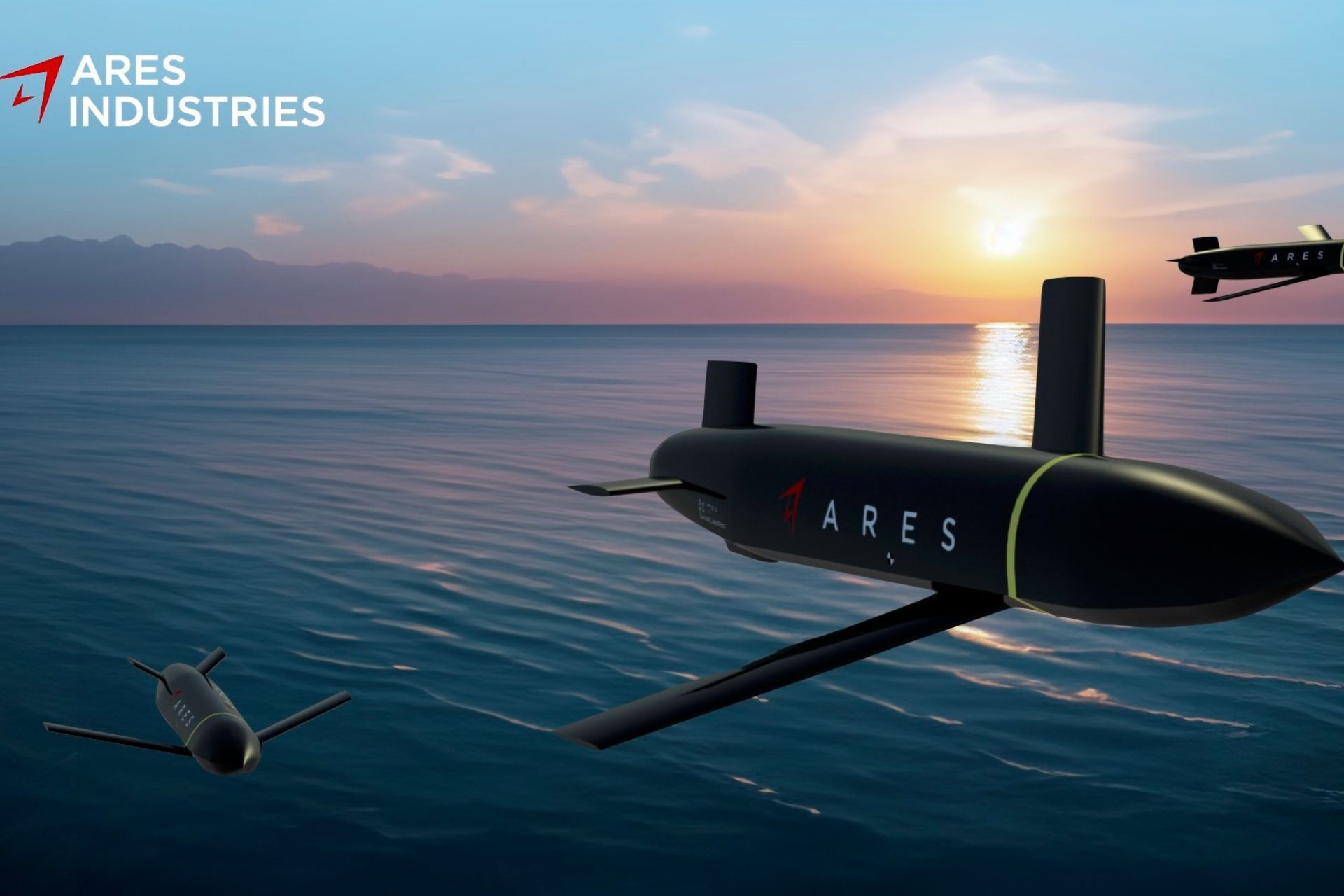Breaking News
New Startup Ares Industries Unveils a Mini-Cruise Missile Project for Smaller Targets.
Ares Industries, a new U.S. defense startup, announced that it has begun flight testing a compact and relatively low-cost anti-ship cruise missile concept, just 11 weeks after its founding. This initiative comes as the U.S. military increasingly prepares for high-intensity conflicts, particularly with China in the Pacific, which could require a massive expenditure of munitions. There is also a growing consensus within the U.S. armed forces that traditional defense contractors may not be able to meet these demands alone, and more attention should be given to what smaller firms can offer.
Follow Army Recognition on Google News at this link

The missiles will be compatible with existing launch platforms, carry smaller payloads at high subsonic speeds, and be capable of destroying ships hundreds of miles away (Picture source: Ares Indutries)
Ares revealed its flight test and outlined its vision in a press release yesterday. This announcement came via the technology incubator Y Combinator, which is backing the startup in its first foray into the weapons sector. Founded in 2005, Y Combinator has become a key player in Silicon Valley, having raised hundreds of billions of dollars over the years to help launch thousands of companies, including Airbnb, DoorDash, and Reddit.
According to the press release, "Ares is developing a new class of anti-ship cruise missiles. We will provide the capabilities that the Department of Defense wants in a form that is 10 times smaller and 10 times cheaper." The missiles will be compatible with existing launch platforms, carry smaller payloads at high subsonic speeds, and be capable of destroying ships hundreds of miles away. Ares is initially focusing on ground- and ship-launched variants, with plans to develop air-launched versions, as well as versions with extended ranges and different payloads.
The release adds that the company spent the summer building multiple prototypes and flight testing them in the Mojave Desert, just 11 weeks after its creation. However, details regarding these tests and how closely the design reflects the final product remain unclear. A graphic released by the company depicts a stealthy munition with a notable chine line around the front, along with pop-out main wings and tail fins.
Although Ares has not yet released specific details, the company is targeting a $300,000 unit cost for its missiles, compared to current anti-ship cruise missiles, which cost around $3 million each, such as Lockheed Martin’s AGM-158C Long Range Anti-Ship Missile (LRASM). Ares aims to deliver its first operational missile systems to customers by mid-2025 but has not provided further details on this timeline.
Recent U.S. military operations to protect commercial shipping and allied warships in the Red Sea, as well as Israel's defense against missile and drone strikes from Iran, have highlighted growing concerns about munitions expenditure rates and the industrial capacity to replenish those stockpiles. Ships from the Dwight D. Eisenhower Carrier Strike Group notably fired 153 Tomahawk missiles between November 2023 and June 2024, while the U.S. Navy plans to purchase only 181 of these missiles over the next five years.
Ares also notes that recent conflicts in the Middle East and Ukraine have demonstrated that current weapons are too large and expensive for modern warfare. Existing anti-ship cruise missiles are large and costly, designed to destroy big ships, while China builds ships at a much faster rate than the United States. Smaller missiles would be sufficient to destroy the smaller corvettes and frigates that make up much of China’s navy, and it would be impractical to use $3 million missiles to counter swarms of small, unmanned surface vehicles costing $200,000 each.
This growing demand for lower-cost, long-range strike capabilities, combined with interest in expanding the industrial base to produce these munitions at scale, reflects a shift in the U.S. defense sector. Non-traditional companies like Ares, supported by technology incubators such as Y Combinator, could play an increasingly important role in meeting the needs of the U.S. military, signaling a move towards a more agile and innovation-driven approach to defense requirements.


























